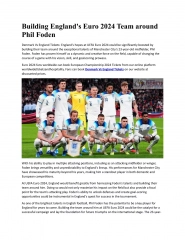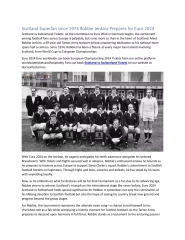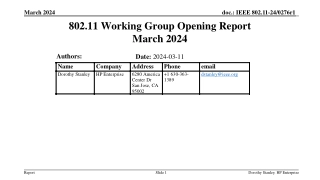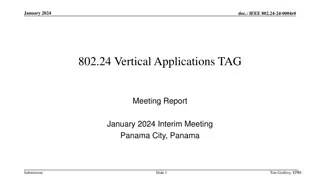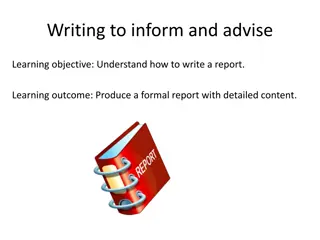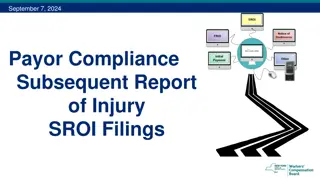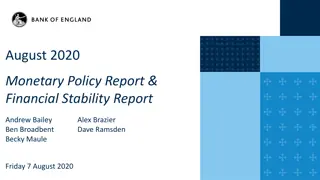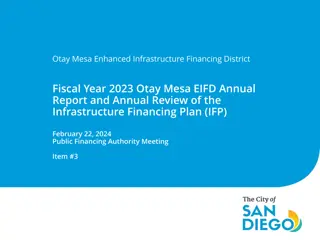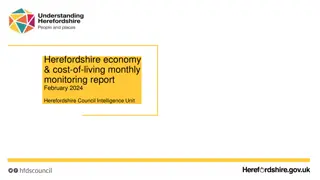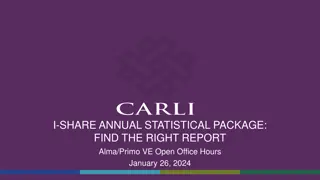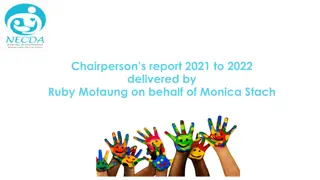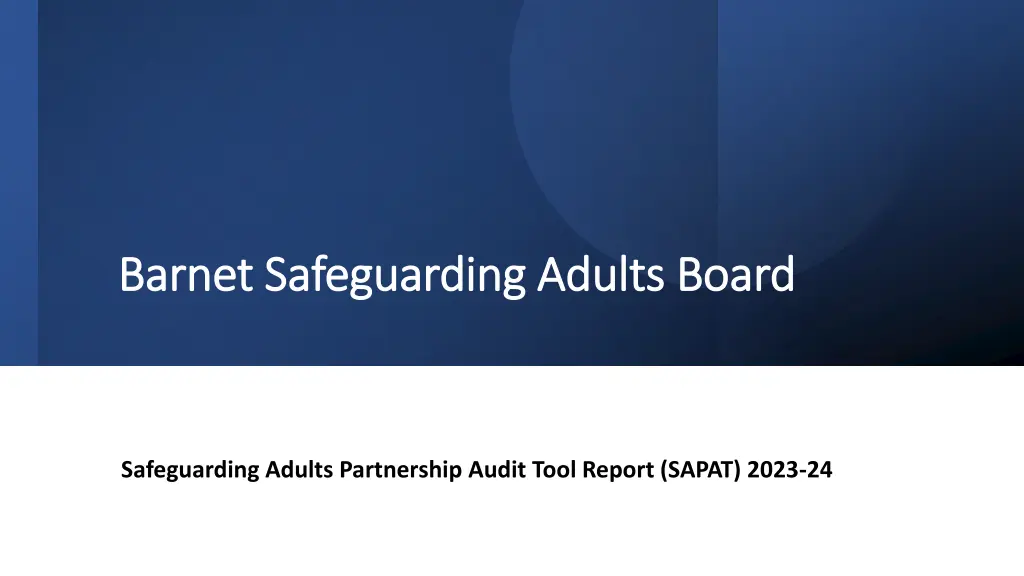
Achievements and Challenges in Adult Safeguarding Practice 2023-24
Discover key achievements and challenges faced in adult safeguarding practice in Barnet, as outlined in the Safeguarding Adults Partnership Audit Tool Report for 2023-24. Learn about successful networking, partnership efforts, and areas needing improvement such as recruitment, engagement, and community representation.
Download Presentation

Please find below an Image/Link to download the presentation.
The content on the website is provided AS IS for your information and personal use only. It may not be sold, licensed, or shared on other websites without obtaining consent from the author. If you encounter any issues during the download, it is possible that the publisher has removed the file from their server.
You are allowed to download the files provided on this website for personal or commercial use, subject to the condition that they are used lawfully. All files are the property of their respective owners.
The content on the website is provided AS IS for your information and personal use only. It may not be sold, licensed, or shared on other websites without obtaining consent from the author.
E N D
Presentation Transcript
Barnet Safeguarding Adults Board Barnet Safeguarding Adults Board Safeguarding Adults Partnership Audit Tool Report (SAPAT) 2023-24
Achievements Achievements Networking and Information sharing Positive working relationships with critical friends & strong consistent membership RFH amended the Mental Capacity Assessment form to increase staff compliance and improve the quality of assessments and successful safeguarding conference hosted Partners involvement and contributions at the SAB. SAB review day. Introduction of new PQA chair. New SAB strategy. Good focus and attention on carers, and financial abuse, fraud and scams and the impact this has on adults at risk The access to Justice subgroup has been a good achievement The incredible amount of embeddedness of the VCSE within the board subgroups which is unusual. Completion of the MEH SAR, and the strengthening of subgroups/forums aligned to the SAB (in particular PUP, Multi Agency Risk Panel, and Provider Concerns Info Sharing) Overseeing the Re-framing Safeguarding Project; Stabilising the PQA , Strong presence from VCS, Running successful Lunch and Learn Seminars . The facilitation of various subgroups to promote joint working, the education through learning about other organisations systems/practices. Board s ability to reach out to agencies and frontline practitioners and change Practice . SAB has provided opportunities to network and feel more connected to BSAB The commitment to partnership working continues to be a strength of the SAB and the standard of work high and sets the bar across London. The multi-agency response to the SARS's
Challenges Challenges Demand, recruitment across all agencies. Other LA not responding to e mails to sharing required Information causes delays when trying to establish a protection plan Engagement from key partners, especially from Advocacy services, Youth Justice and the police Consistent participation from partners and this reflects the wider system pressures on resourcing and capacity. Not enough discussion at board level - much seems to be led by VCS reps. - is this due to the statutory status of the board so statutory partners provide representation only? Ensuring services reach all communities and the voice of people and communities is represented, heard and makes a difference. The impact of the cost-of-living crisis for residents and organisational restructuring/ to engage in SAB work will require the partnership to be innovative and to set efficient and effective timescales for delivering outcomes Increasing numbers of homeless clients and people rough sleeping with limited access to suitable accommodation. How vulnerable clients being discharged from hospital are managed, improving referral pathways for those being discharged from hospital, more opportunities for operational staff working with vulnerable residents to meet.
key achievements within organisations in terms of adult key achievements within organisations in terms of adult safeguarding practice? safeguarding practice? Probation have utilised MAPPA and attended BSAB Access to Justice Met: Implementation of RCRP. MASH referral training rolled out across frontline policing Pan London. Ongoing Stop and Search charter work is ongoing across PAN London. LFB have allowed for greater and a more responsive process LBB had a safeguarding external Audit which confirmed safe, proportionate with evidence of good legal literacy responses. Adult's voice is heard and recorded clearly. B Mencap provided MSP training and sharing new developments with Trustees and staff. Participated in Community Engagement with minoritized communities For Probation, all staff have completed mandatory Adult Safeguarding training IB led on setting up the VCSE MASH Forum subgroup. ICB despite organisational restructure they maintain safeguarding business as usual obligations. ICB funded safeguarding supervision training via Bond Solon for the health safeguarding workforce across NCL CB Plus reviewed their safeguarding processes and protocols; DBS status of status and implemented the six areas of safeguarding in their corporate register BEHMHT introduction of safeguarding surgeries, amalgamation of various policies to streamline documents. Safeguarding Team now involved in new starter induction. CLCH- significant work carried to highlight areas of concern, raise awareness and make necessary changes. Practitioner safeguarding training compliance, safe hospital discharge processes reviewed , Pressure Ulcer risk assessment reviews for improvement with audits to evidence this.
In the past year what have been the barriers to effective In the past year what have been the barriers to effective safeguarding practice within your organisation? safeguarding practice within your organisation? Probation find difficulty where consent is not obtained, or if they have not met the threshold but concerns exist Met- inexperienced cohort of investigators. Vacancies and recruitment and retention issues. RFH find there have been increasing numbers of safeguarding concerns for patients with complex needs. Safety Plan a challenge with multiple agencies and service restrictions LBB -buy in from partners waiting for responses from partner organisations. B Mencap- There is still a lack of trust, between social workers and VCS staff where small adjustment are suggested to safeguard the person receiving support. IB - Delays in feedback and progressing safeguarding issues for our clients though MASH but this has improved a great deal. The ICB has experienced some disruption due to restructure and there has been a gap within named GP roles. CB Plus - types of safeguarding concerns coming to their attention have grown in complexity. BEHMHT - staff turnover results in a constant need to train new staff around safeguarding. CLCH- Capacity of frontline teams /workload, complexity of cases, Normalising abuse from patients /carers, challenge of having difficult conversations, Confidence to challenge decision making, Access to information /relationships with partner agencies, Receiving outcomes from safeguarding referrals
1)key issues that ought to be addressed by the SAB next year? 1)key issues that ought to be addressed by the SAB next year? Work around neurodiversity Backlog for case reviews. Neglect and Abuse The interface between mental health Act/mental Capacity Act - executive functioning, Self-neglect - managing patients who decline care, substance mis-use Learning from SARs what can we do differently. multi exclusion homelessness Understand partners level of training. Promoting a clear understanding of what is and what is not safeguarding. More time to follow up task and to make connections between the various strands of work that together make up the BSAB's agenda. Engagement from the Police should be improved, in terms of responding to abuse itself, to interview victims, witnesses, etc, and in terms of RCRP Support for complex Mental Health, mapping of the existing pathways and how this links in with right care, right person 2. Exploring the care and support needs of older people leaving custody Hospital based neglect issues eg pressures sores, housing issues (including mould and homelessness), RCRP Maintenance of partnership engagement given system pressures.
2)key issues that ought to be addressed by the SAB next year? 2)key issues that ought to be addressed by the SAB next year? Joining up of adult and children safeguarding work to effectively address transitional safeguarding concerns Learning and development for the safeguarding workforce- Upskilling the VCS to undertake care and support assessments for residents for whom they have safeguarding concerns; Establish a decision-making tool for practitioners to follow if a resident does not have a care/support need; Introduce community ambassadors to support the VCS. Clarifying the role the VCS can take as an early intervention/prevention role for SARs. Raising safeguarding awareness amongst public/organisations Promoting the benefits of multiagency working online harms, boosting awareness for both staff and service users. Domestic abuse /coercion and control within families/care relationships Transition of 18 25-year-olds with care and support needs in the health and social care system. Effective referrals to local authority in relation to pressure ulcer management
In the past year have any issues arisen in partnership working amongst SAB In the past year have any issues arisen in partnership working amongst SAB members that impact adult safeguarding practice locally members that impact adult safeguarding practice locally No, engagement has been positive when section 42 enquiries are required. There has been good working relationship between the acute Trust and the Local authority. Partners understanding of information required of them as part of the safeguarding enquiry. Making safeguarding personal is not centred on the MASH referral form, asking the person what outcome they want from the safeguarding referral when we make one The capacity and capability of partnership organisations to undertake delegated safeguarding enquiries remains an area for further exploration and improvement. For health partners ongoing assurance needed around how actions and recommendations from SARs and other safeguarding incidents are incorporated into wider quality, patient safety, and governance agendas within organisations. Met police have highlighted their resource and capacity is stretched , and this may impact future representation at BSAB subgroups. The impact of RCRP arrangements on safeguarding remains unclear. The divide between statutory and non-statutory partners remains challenging - despite the best efforts of the Chair and Business Manager. It would be good to create a softer interface so that the two sectors could work more effectively together. Information sharing different organisations acknowledging their role and abilities to promote the wellbeing of adults through communicating information in a concise, timely manner. Holistic approaches to safeguarding when adult admitted to hospital a checklist Some issues arose from the MEH SAR process regarding the progression of action plans and ownership of recommendations beyond the case review group. Engagement Timely submission of information
How do you How do you quality assure the application of the quality assure the application of the Mental Capacity Act within your organisation? Mental Capacity Act within your organisation? NW BCU has a MH SPOC that reviews all cases to QA them. RFH- MCA is recorded via patient electronic records (EPR). The safeguarding team quality check completed MCA when reviewing patient EPR. Twice year external audits in addition to selected audits of workers undertaking MCA work completed by LBB BEHMHT have management within the locality teams- undertake routine Casefile audits where the assessment of mental capacity is scrutinised. CLCH has clear processes in place with visibility of Safeguarding Team in clinical settings VCS partners would like more awareness of this.
How does your organisation support staff with high risk/complex cases? MAPPA, professionals' meetings, referrals Significant incident tracker is held locally for all high risk/complex cases. The safeguarding team are informed of high risk/ complex cases and have oversight of any issues Multi-Agency Risk panels/ complex case discussions / supervisions/ Safeguarding practice forums and senior management escalation Through individual supervision, regular Team meetings, and the internal Safeguarding group CLCH SPOC services provide support to staff who are concerned about high risk and complex cases. This is also monitored through the online datix system, ad hoc and planned supervision and MDT meetings. A significant proportion of the Probation caseload is high risk and complex. Staff have support from the Offender Personality Disorder (OPD) Pathway. Supported by the Safeguarding lead and team manager with debriefs. The designates offer support to senior safeguarding staff from provider trusts, operational continuing healthcare staff from within the ICB for professional's meetings/strategy meetings where cases are contentious and/or sensitive BEHMTH Safeguarding Team Leads provide case consultation for front line staff and teams who are working directly with high-risk/complex cases. This includes support at MDT s and Professionals Meetings
Work to engage with people who have a lived experience of services, in Work to engage with people who have a lived experience of services, in particular adults with protected characteristics or under particular adults with protected characteristics or under- -represented communities? communities? We have SPOC roles and seek to identify those known to services and link in . Lived experiences shared for stop and search cases. There is a stop and search monitoring group. The LD safeguarding team organised some service user engagement meetings and have undertaken a project to introduce care bags Equality support groups and community groups that reach out A range of LA engagement forums. Including coproduced activities, training and strategies. People with LD involved in LA engagement forums. Including coproduced activities, training and strategies. In BH staff have been trained on the trauma informed approach; all staff have regular 1:1 meeting with line managers. represented Consideration of the need to undertake outreach in more isolated areas of the borough. Through team meetings and briefings. Probation pilot which includes those with lived experience to participate in focus groups and co- commission related aspects of local service delivery. Board and Peer service is fully made up of or led by disabled people who have all used services. ICB has developed two strategies; Working with People and Communities, and Working with the VCSE. Lead on work with and reach into communities reflecting the spectrum of intersectional of Barnet's diverse communities. NLMHP has service user forums to engage people with lived experience of services, to gather feedback and inform future service planning, processes and delivery
Learning from SARs Learning from SARs As part of the MASH Review police are co- creating a terms of reference between ASC and the MPS re how we should be working together. RFH- Face to face training has been delivered to staff to increase knowledge and practice of the Mental Capacity Act. There has been a focus on Professional curiosity The LA in response to the findings of 2 Thematic SARs, we reviewed their Deprivation of Liberty Safeguards [DoLS] tri-age process. B Mencap focus is on fire safety and reinforcing the lessons from the SLIP about people with learning disabilities CLCH Tackling health inequalities through access to health project The NCL wide discharge policy has been created in partnership with local NHS partners and is due for rollout in the 24/25 FY CB Plus remain committed to being professionally curious about the cases presented for SARs BEHMHT - 7-minute briefings continue to be produced and learning cascaded to staff and also any learning events. What is learnt in one borough is disseminated across NLMHP to ensure learning is wider than the Division involved CLCH -Webinars for Staff and Safeguarding conference
How does your organisation disseminate and embed learning from SARs? Included in safeguarding training and been distributed in the safeguarding newsletter which is distributed Trust wide and is available to all staff via Trust safeguarding intranet page. All staff emails. Weekly leadership message. SMT briefing. Training, bespoke training, link working sessions, lunch & learns, and target audits. The reports are sent to staff and discussed at Barnet Mencap's Safeguarding Group and Managers' meeting Within our subgroup, the VCSE Mash forum and touchpoint team meetings have safeguarding on the agenda Via the NCL Safeguarding system learning group, and also via localised mechanisms for example the Barnet Health Safeguarding Forum and via sharing with provider NHS Trusts. Senior Leadership Team meetings if necessary. From all staff comms, to attending Divisional meetings to discuss learning and gain assurance of how the Division will further embed learning in practice. Case examples used in training / discussion Website -link to SAEB SARS and repository, 7- minute briefings on safeguarding website. Through the Barnet Homeless Forum, we engage with community groups and third sector partners working with homeless households
Wider Learning Themes Getting other agencies s to see the risk regarding Hoarding ICB has the challenge of aligning resources efficiently and effectively, and to continue working in partnership to integrate services. in a way that supports early intervention, holistic support, and tackles the wider determinants of health. Creating a culture where practitioners no longer see self-neglect/hoarding as a lifestyle choice Belief that if a person refuses a referral to London Fire and Rescue that we do not consider the public interest /executive function of the person to make that decision /accept the risk . The time it takes to work with a person to address the self-neglect /hoarding Can be difficult without consent. Ongoing training & development for all frontline colleagues for situations that require referrals into partner agencies. Self-neglect is a challenge as quite often the individual has capacity to make decisions and requires long term work to engage them Hoarding issues Resident engagement & reluctance to use their legal framework to progress matters and overdependence on ASC. Getting additional support and funded hours from the local authority. Staff completing home visits has not been prioritised due to resourcing pressures
Challenges for your organisation in relation to multi exclusion homelessness or domestic abuse Can be difficult to support those who suffer from learning needs/vulnerabilities Inexperienced staff and resourcing & high demand issues. Discharging patients who are elderly, have care needs and have experienced domestic abuse as there are a lack of available resources/ accommodation to support them. There is also limited refuge spaces for male victims of domestic abuse No recourse to public funds cases. Requests of ASC to work outside of their legal duties in relation to housing. Limited housing resources for adults experiencing domestic abuse/ There is more concern about autistic people and how they are impacted by domestic abuse. Challenges continue in accessing longer term accommodation support for homeless individuals, however the AfeO scheme is now mobilised. Lack of accommodation within Barnet of either temporary or a permanent nature, especially accessible accommodation, barriers to hospital care for homeless people CLCH have a very limited capacity currently. Other specialist by-and-for services have also had significant waiting list posing a barrier to service users being able to seek effective support at a time that they need it and are ready to engage. Impact of poverty /homelessness/ no recourse to public funds higher on the local /national agenda Increasing demand and the lack of affordable private sector accommodation in London.
How can the SAB as a partnership support you in your challenges? Identify resolutions and introduce key stakeholders to support Continued assistance in strategy meetings for high risk case. More expeditious response to enquiries relating to police investigations. The provision of training is helpful Closer working with the partnership London SAB to agree data requests from partner organisations. Provide training and unified template for completion of SAR. Better advertise the Lunch and Learn slots. More training on my Co-chair of the BSAB responsibilities. Microsoft form not great Looking at improving partnership working, in particular timely and good quality referrals of people at risk of homelessness For wider discussion in the PQA challenge and progress meeting SAB Framework is still tilted towards the legal framework. It would be good if the SAB could focus a little more on pre-emptive or anticipatory impacts. Continue to listen to suggestions from associate agencies that will enhance practices Continues to facilitate subgroups that allow ideas/practices to be shared to secure best outcomes for the vulnerable adults we work with. Difference in applying safeguarding thresholds when referrals made by CLCH staff to local authority To continue with the webinars and excellent guidance that makes a difference .








